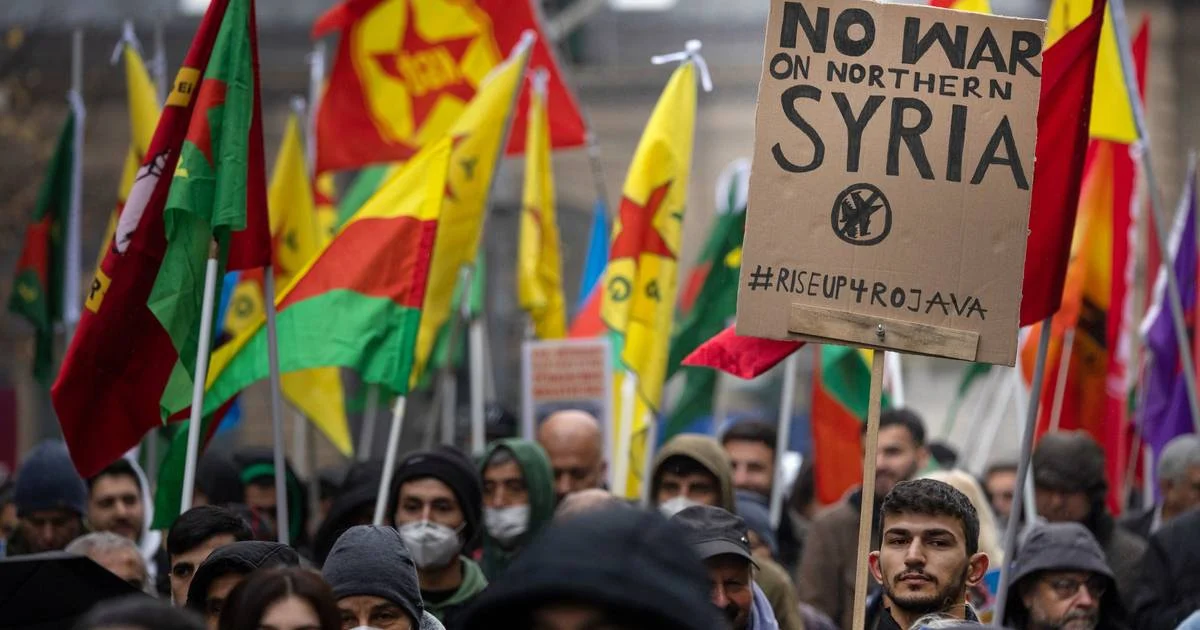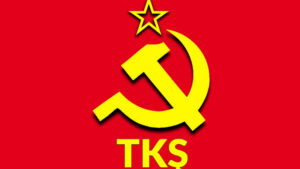After years of diplomatic tensions between Turkey and Iraq, the two countries are moving
closer again – what are the reasons?
We will go into more detail in order to understand the background of the latest attempts at
rapprochement between the two states.
1980 until today
After the 1980 military coup in Turkey, the military seized power and had countless socialists, revolutionaries and Kurds persecuted, tortured and killed. At that time, the PKK (Partiya Karkerên Kurdistanê, Kurdistan Worker’s Party) was granted refuge for two decades in Syria under Hafiz al-Assad (former Syrian president and chair of the Arab nationalist Baath-party). Syria took in the PKK to use it as leverage against the Turkish government, which in turn launched dam projects on the Euphrates and Tigris rivers to reduce Syria’s water supply.
When Turkey threatened military invasion of Syria in 1998, Assad gave in and expelled both Öcalan and the PKK from the country.
The PKK then, following the US invasion and the establishment of the Autonomous Region of Kurdistan, settled in the so-called Medya Defense Areas in Başur (South Kurdistan, within northern Iraq state territory), where it still exists today and has military bases.
Relations between the Syrian and Turkish government have been improving in recent years, the tensions of the late 1990s have since withered down.
Syria is demanding the withdrawal of the Turkish military from Idlib and Efrîn, which it seized in 2017. Both Assad and Erdogan consides the self-administration of North and East Syria as a threat to their colonialist states, which are besieging Kurdistan.
This is their common denominator, the issue par excellence, which brings them to the table over and over again.
The liquidation of the guerrillas and the trade route project
Relations with Iraq, on the other hand, have remained constantly strained, as Turkey carried out airstrikes on the Medya defense areas, situated within the borderlines of the Iraqi state. There have been repeated withdrawals of diplomats. In recent weeks, however, there was a meeting between the two states, including the foreign and defense ministers, the heads of the intelligence services and, among others, the head of the Shiite militia Falih Fayyad.
In the course of this meeting, Iraq – which, like Turkey, is looking to counteract its economic crisis – bowed to the conditions of the Turkish state and declared the PKK a banned organization.
This is a turning point for the Kurdish liberation movement. In April, Erdoğan is due to visit Iraq, for the first time in twelve years to conduct further negotiations on the liquidation of the guerrillas. Turkey would like to establish a new trade route with Iraq to boost the economies of both countries. The aim is to connect the Persian Gulf with Turkey – the only problem is that this “Silk Road” runs through North and South Kurdistan.
In order for this project to be realized and the capital required for it to be secured, the Kurds must at least be neutralized or even resettled. Turkey is gradually implementing this project in Mexmûr and Şengal.
Mexmûr is home to many people who fled from DAESH and Şengal is the settlement of Yezidis who were subjected to genocide by the same fascist Islamist militia in 2015. Turkey wants to neutralize and occupy these two areas quickly in order to set the course for the project. Erdoğan has announced his intention to advance up to 30–40 kilometers deep into the Autonomous Region of Kurdistan in order to put an end to the PKK.
It remains to be seen whether Iraq is ready to throw its state integrity overboard by giving Turkey the green light for a ground offensive. History teaches us, however, that the colonialists of Turkey, Iraq, Syria and Iran are quick to come to an agreement and overcome their mutual contradictions even if only temporarily – when it’s the Kurdish question at stake.
On the other hand, Iran is also an important player in the region. The Shiite popular mobilization Al-Hashd ash-Shaʿbī, which is supported by Iran, is an ally of the PKK in Şengal. So if Turkey wants to besiege the region, it will also have to deal with the Iranian state.
Let us strengthen the united struggle against colonialism
Even though it is becoming apparent that the fronts are continuing to tighten and that the Kurdish people are on the brink of a colonialist two–front war in North and East Syria and South Kurdistan, hope remains strong.
On the occasion of this year’s Newroz festival, countless crowds took to the streets across Kurdistan and showed that they will not be cowed down.
In line with this large participation in the Newroz festival, it was announced that the guerrillas are now in possession of an air defense system, enabling them to bring down a unprecented number of Turkish drones.
The local elections in Turkey and Northern Kurdistan have also shown that the majority of Kurdish cities are behind the democratic DEM party. After Erdoğan’s attempt of a trustee coup in Wan, in which the victory of the democratically elected mayor Abdullah Zeydan was declared null and void, there was a large mass resistance for the first time since 2015. This
resistance led to Turkish colonialism having to take a step back and retroactively recognize Zeydan’s victory.
In North and East Syria, despite attacks on infrastructure, the people are united behind the
revolution.
Let us organize the resistance like the people of Wan
These are all promising prerequisites for organizing the resistance in all four parts of Kurdistan as well as in Europe.
All progressive democratic forces, organizations and people must feel connected to the resistance of Başur and North and East Syria, because only if we increase the pressure on the streets of Europe, as the people of Wan did in Bakûr, can we defend South Kurdistan and the revolution of North and East Syria, which is committed to the brotherhood of peoples, the liberation of women and the heroic struggle against DAESH.




